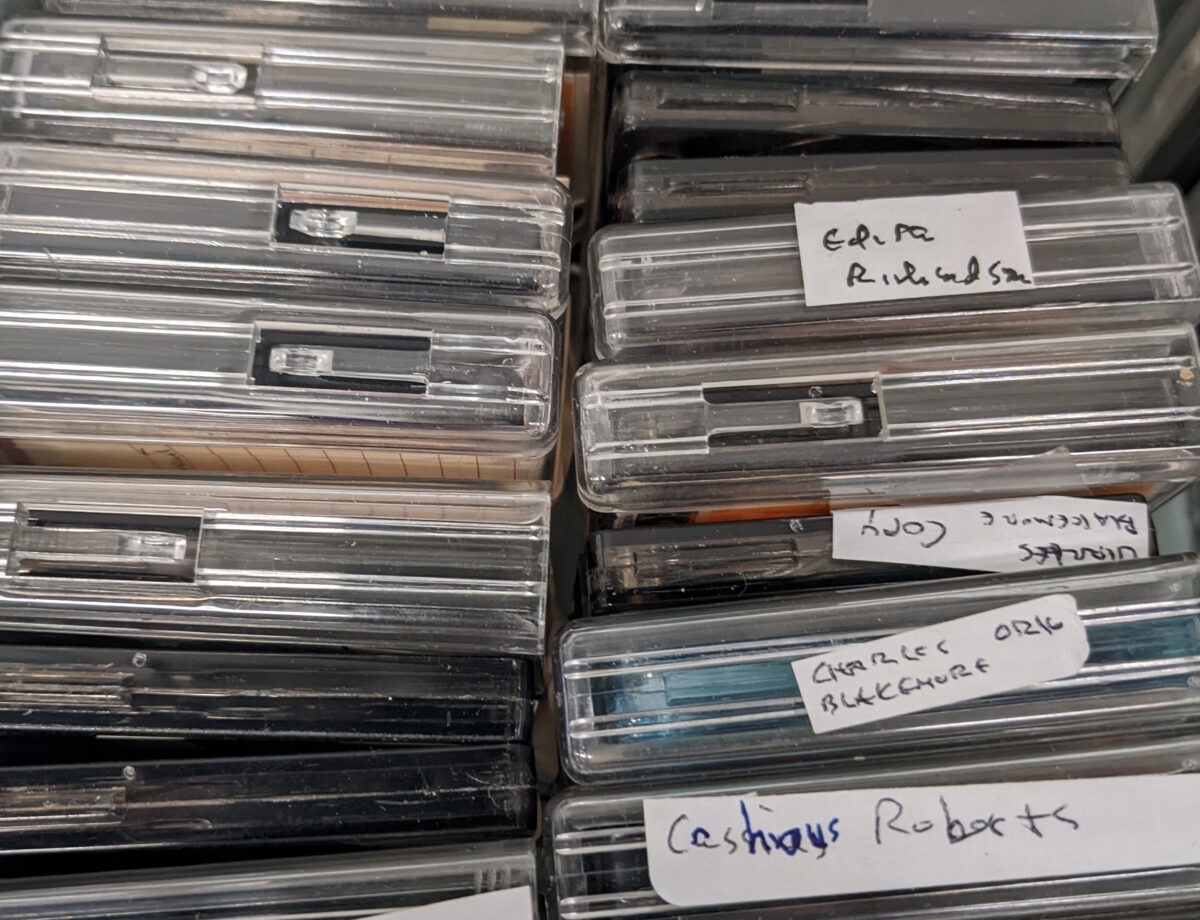Kimmie Parker
Assistant Professor
Oakland University
The Pontiac Oral History Archive, housed in Oakland University’s Kresge Library, contains 22 cassette taped interviews with Black residents of Pontiac, Michigan from the mid-1970s. To date, this archive has been largely inaccessible, available only to those who can come to our campus to listen to the cassettes. My collaborator, [name anonymized for peer-review], and I see immense value in this archive and have been working to create a public website to house the recordings, historical photographs, and other related artifacts.
For decades, Pontiac was a vibrant city with one of the largest populations of working-class Black Americans in the US; after the auto industry moved much of its operations away from the city, an already disenfranchised population struggled to move forward. Society then, as today, grappled with racism, racial inequality, socio-economic inequality, and police brutality. The stories on these tapes range from first-hand accounts of the Great Migration to industrial working conditions to racist encounters to social and family life in the 1970s. The voices of everyday people, particularly people of color, often go unheard. The preservation of and accessibility to these important historical accounts are critical as we work towards a more just society.
Since fall of 2021, we have worked on this project in collaboration with members of the Pontiac community and colleagues across our campus. We have obtained funding for the digitization and transcription of the cassette tapes, introduced students and community members to the archive, obtained permissions and made connections with living relatives, and began designing an online archival website. This interdisciplinary and wide-ranging process has become much more than a design project: this work lives at the intersection of design, community activism, historical preservation, and digital humanities. I look forward to sharing our work-in-progress as we strive to equalize access to these important voices.
This design research was presented at Design Incubation Colloquium 9.1: Kent State University on Saturday, October 15, 2022.
